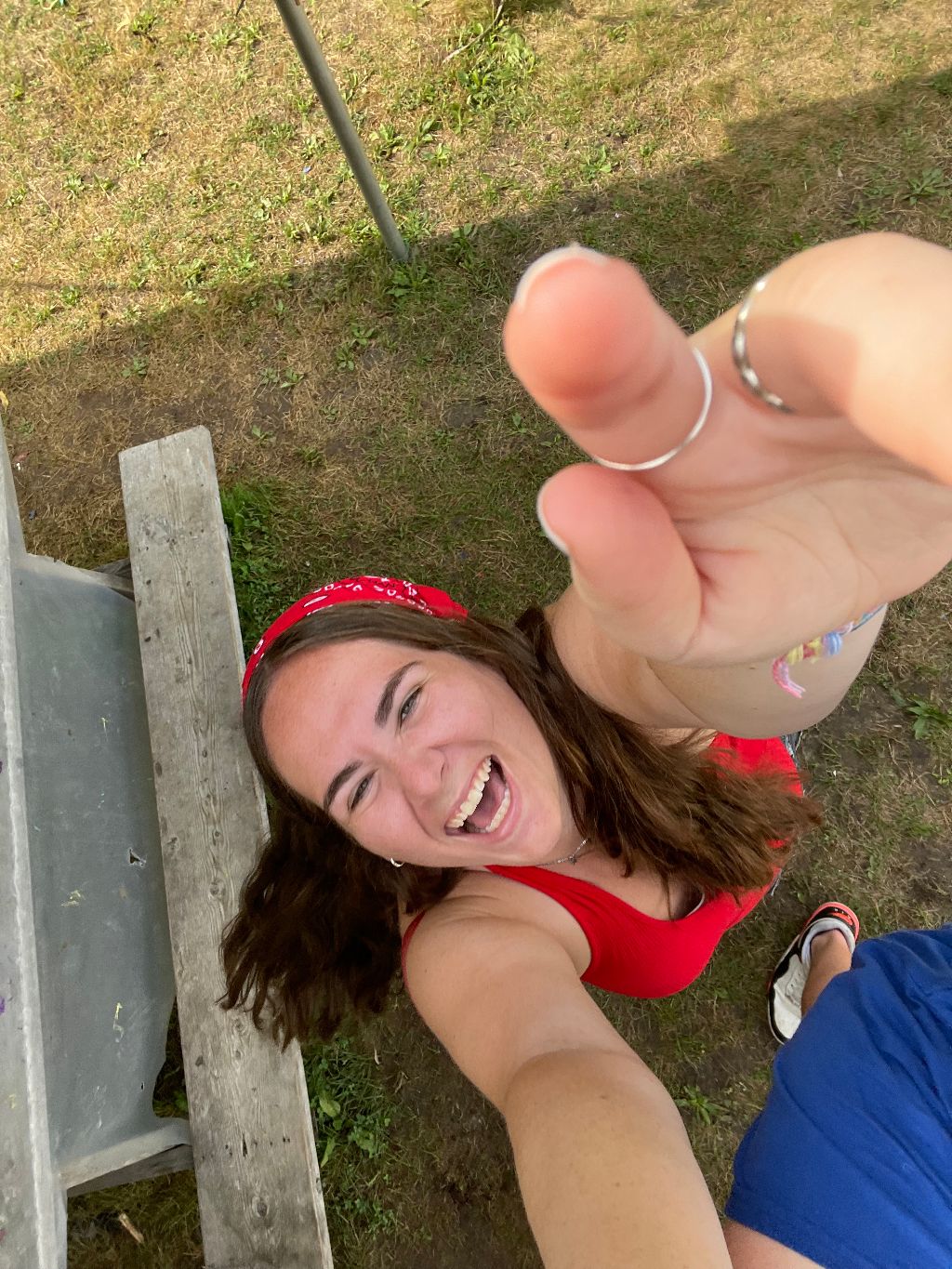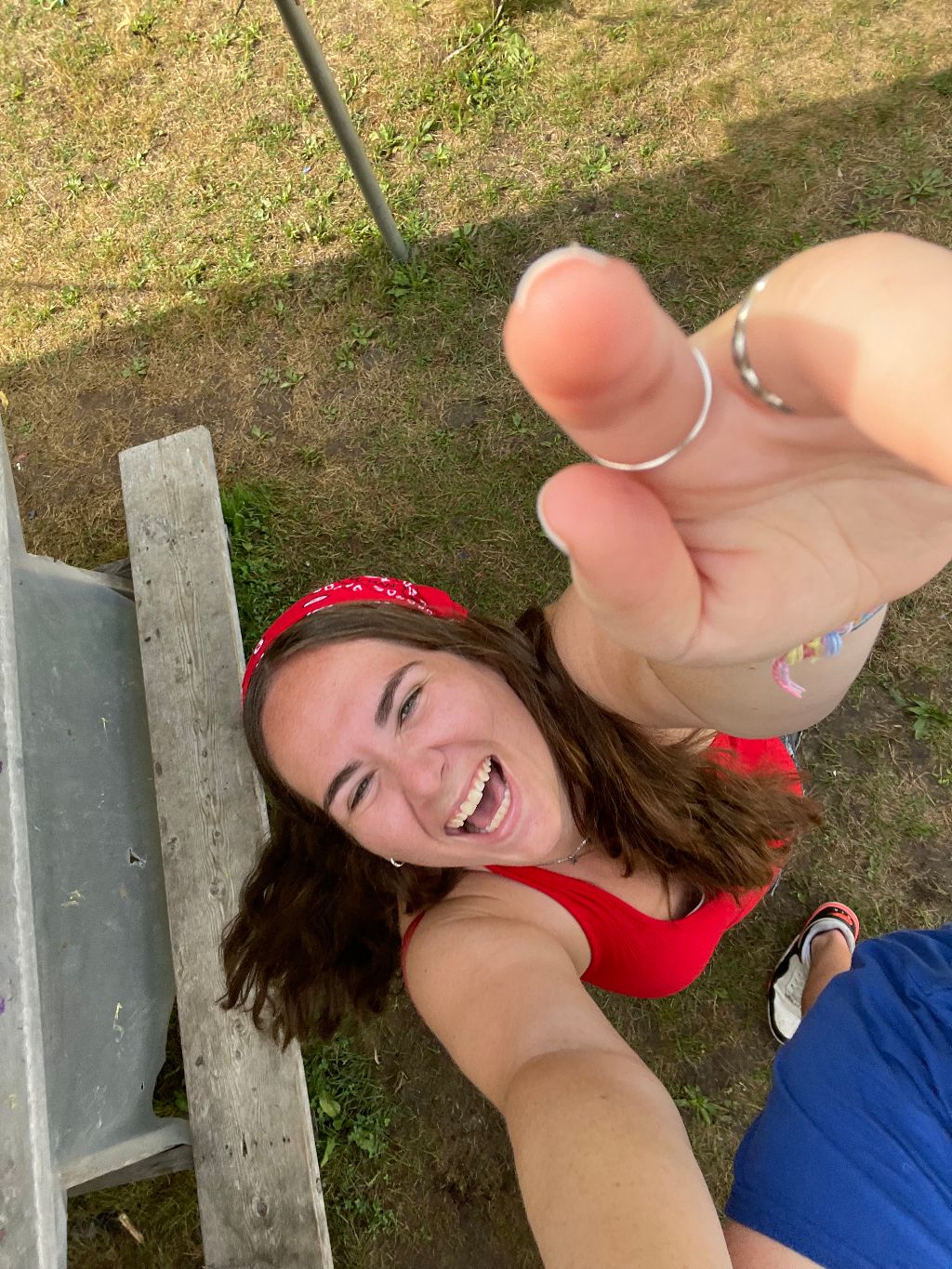
How I Learned to Live and Love Again

This is Sam's Story
When I was younger, I had a family friend who referred to me as the “what if” kid; I was always struggling to get things done without thinking of what could happen and jumping to the worst-case scenario every single time. Later on, I realized that being the “what if” kid was just a disguise for having anxiety. I was finally diagnosed with Socialized and Generalized Anxiety Disorder in grade 11, and I was diagnosed in my second year of university with Seasonal Affect Disorder (which is a fancy term for Seasonal Depression). Even though I was not diagnosed until grade 11, I started my therapy journey back in grade eight. It first started for me as a way to just release the emotions I had and have a place to talk; I never thought of it as a way to help me with my mental health. The therapy journey in itself can be really tough. It took me six years to find a therapist that I liked and to realize that therapy was there to also help me, and not just give me someone to listen.
 Though I have been dealing with anxiety for the majority of my life, it all came to a halt when I was in my second year (three years ago). At the beginning of the school year around October, I began to feel these feelings of complete emptiness and sadness. I spent the next few months not wanting to leave my bedroom, go to class, or see people. I was overeating and keeping my emotions to myself while overly checking in on my friends to make sure they were not feeling the way I was. When I came home from school over winter break, I did not leave my room; I only left to use the bathroom and eat when I absolutely needed to.
Though I have been dealing with anxiety for the majority of my life, it all came to a halt when I was in my second year (three years ago). At the beginning of the school year around October, I began to feel these feelings of complete emptiness and sadness. I spent the next few months not wanting to leave my bedroom, go to class, or see people. I was overeating and keeping my emotions to myself while overly checking in on my friends to make sure they were not feeling the way I was. When I came home from school over winter break, I did not leave my room; I only left to use the bathroom and eat when I absolutely needed to.
During this period of time, I had “passive suicidal thoughts.” Passive suicidal thoughts are essentially suicidal thoughts without actually acting on them or planning to do anything. For example, I would think things like “I don’t care if I get hit by this bus right now” and that is when I realized that I need to get help, and I need to get it now. I reached out to the mental health nurses at my school who referred me to a doctor and a psychologist. The doctor I started seeing prescribed me antidepressants and the psychologist I started seeing gave me coping mechanisms and managing strategies. It has now been three years since I was in the darkest place of my life and I can confidently say I am okay. I want to point out that antidepressants can be very scary to start, and sometimes people have to go through different medications before they find the right one. I had to recently change mine as well but they are part of the puzzle that helps me cope and manage.
A method that works very well for my anxiety is cognitive behavioural therapy (CBT) and mindfulness. CBT refers to a way of reframing your thoughts. You take the initial thought or event that has triggered your anxiety, find the evidence to support the thought, find the evidence to rebuttal your thought, and lastly, use the positive evidence to reframe your thought into a good one. For example, if you had an exam to write and your thought was “I’m going to fail,” you find the evidence to support your thought (“I feel unprepared, I haven’t studied enough”), find the evidence to negotiate your thought (“I have never failed an exam, I know the material, I have time to study, I like the material I am learning about”), and, finally, find that your thought is only just a thought. Mindfulness is essentially the ability to stay present and in the moment. As someone who used to always worry about what was to come (and I still do sometimes), practicing mindfulness has really helped me to step back and stay present. One trick I learned from a therapist once is to take your non-dominant hand and try to write your name or a sentence more than once because at that moment, you are so focused on writing, everything else falls out of your mind.
A breathing exercise I rely heavily on is the box breathing method. The goal of box breathing is to get you to slow your breathing down to a healthy point which results in calming your mind down as well. You breathe in for four seconds, hold it for four seconds, breathe out for four seconds, hold it for four seconds, and you repeat this as many times as you need. Box breathing has helped me a lot in times when I feel like I cannot catch my breath.
I realize my anxiety and my depression will never go away, but I also know that I can help myself and make that dark cloud above me smaller and smaller until it is just a speck. I have learned to love myself, to take care of myself, to reach out and seek help, and to acknowledge my mental illnesses, but my journey is not over; there are days that are extremely tough but there are also days that are extremely incredible. I remind myself a lot that the bad days are just as long as the good days and not every day is going to be a bad one. Everyone’s journey is going to be different but that does not mean you cannot get through it. Hold on a little tighter, love a little harder, breathe a little lighter, smile a little bigger, and be here to see tomorrow. You cannot always get over your mental illness but you can learn to live with it and live with it in a beautiful beautiful way.

Don't see what you're looking for? Send us an email!
©Copyright 2024 Cam’s Kids powered by Kids Help Phone
Not-for-Profit Organization. B/N: 921508-5
Thanks for visiting Cam's Kids. Please remember...
Cam's Kids is not a service provider.
If you are in crisis, please call 911 or go to your nearest emergency department. For free, confidential counselling, contact Good2Talk or Kids Help Phone.
Post-secondary students: find your local crisis resource here.





